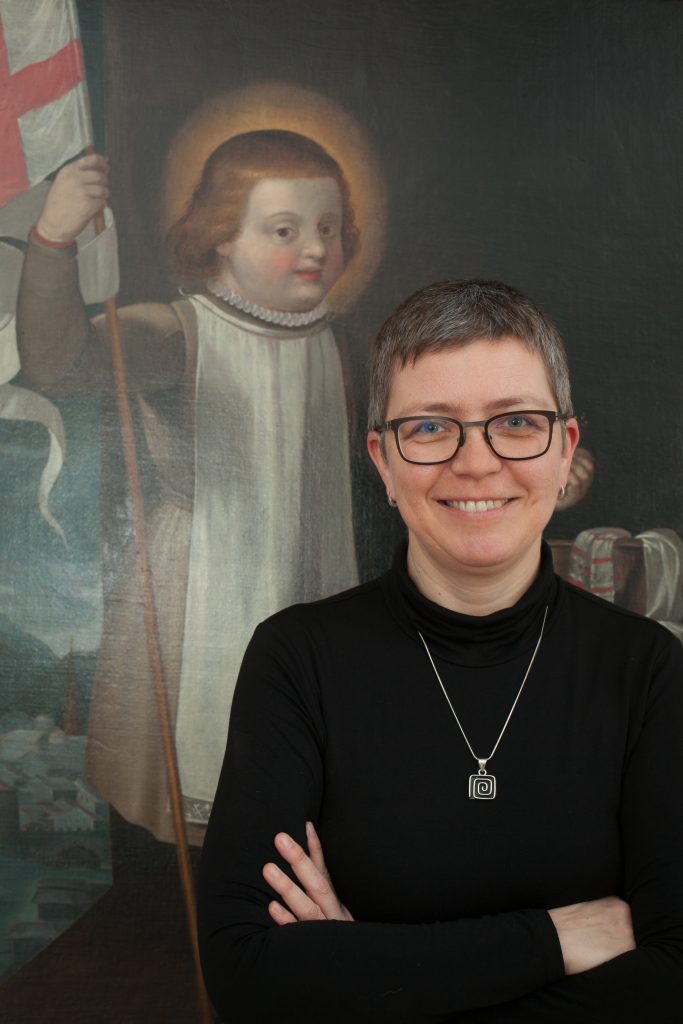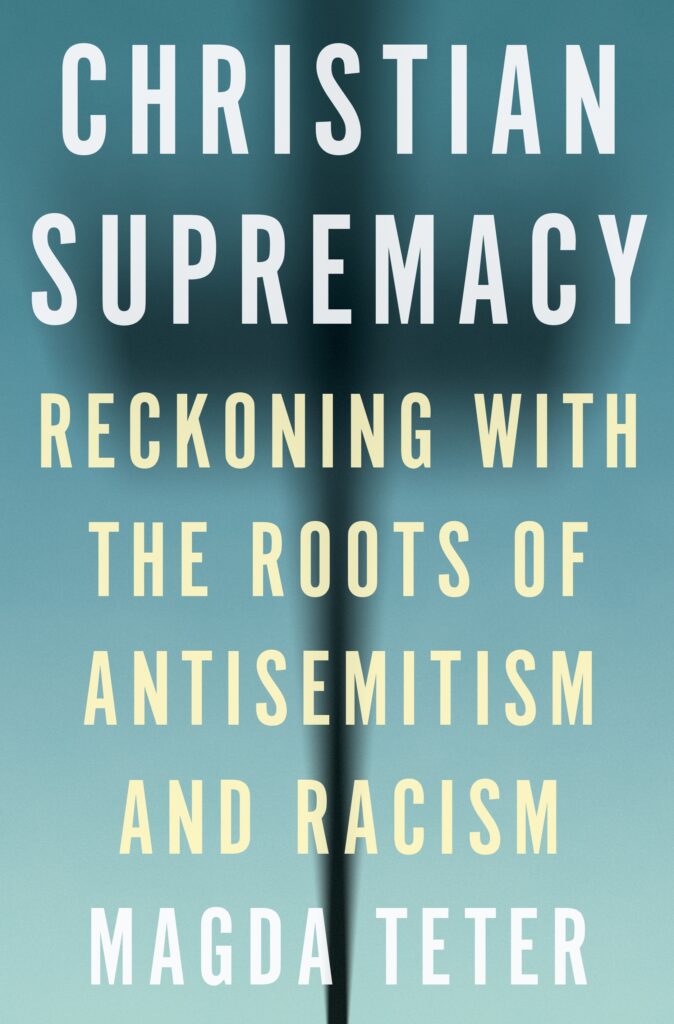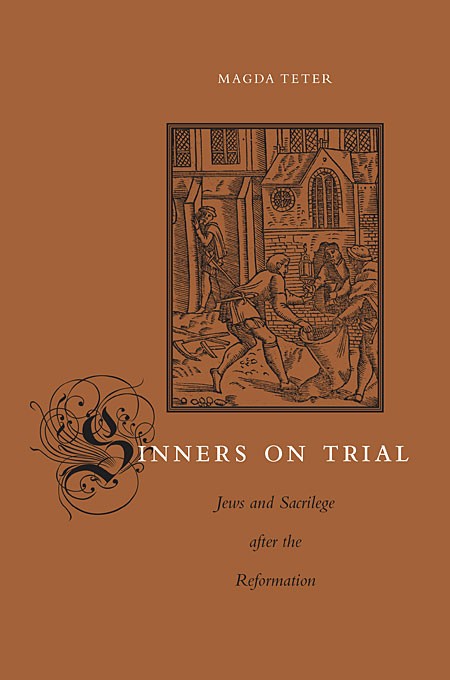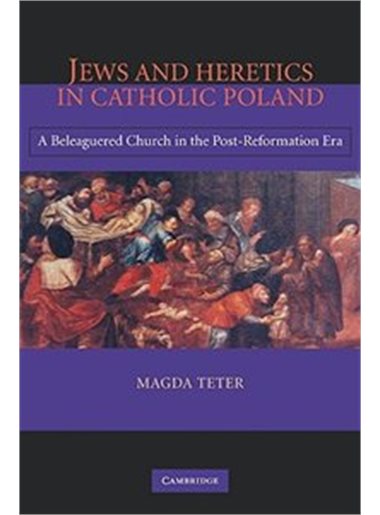Magda Teter is Professor of History and Shvidler Chair in Judaic Studies at Fordham University. In addition to Blood Libel: On the Trail of an Antisemitic Myth, she is the author of Christian Supremacy: Reckoning with the Roots of Antisemitism and Racism (Princeton 2023), Sinners on Trial: Jews and Sacrilege after the Reformation (Harvard 2011), and Jews and Heretics in Catholic Poland (Cambridge 2005). She served as a consultant for the Polin Museum of Jewish History in Warsaw and for the BBC documentary Unorthodox Vows and has contributed to the New York Review of Books. In 2012-2016, she served as the co-editor of the AJS Review and in 2015-2017 as the Vice-President for Publications of the Association for Jewish Studies. She is currently the President of the American Academy for Jewish Research.
Teter has received fellowships, including from the John Simon Guggenheim and Harry Frank Guggenheim Foundations, and was Mellon Foundation Fellow at the Cullman Center for Scholars and Writers at the New York Public Library.
Photo ©Chuck Fishman

More by the Author
Christian Supremacy
A panoramic cultural and legal history that traces the roots of antisemitism and racism to early Christian theology
Christian Supremacy examines how Christian theology of late antiquity that cast Jews as “children born to slavery” inscribed the supposed theological inferiority of Jews into law, creating tangible structures that reinforced a sense of Christian domination and superiority. With the dawn of European colonialism, a distinct brand of European Christian supremacy found expression in the legally sanctioned enslavement and exploitation of people of color, later taking the form of white Christian supremacy in the New World.
Drawing on a wealth of primary evidence ranging from the theological and legal to the philosophical and artistic, Christian Supremacy is a profound reckoning with history that traces the roots of the modern rejection of Jewish and Black equality to an enduring Christian heritage of exclusion, intolerance, and persecution. Released in print and as an audiobook on May 16th, 2023. Learn more:

Sinners on Trial

In post-Reformation Poland—the largest state in Europe and home to the largest Jewish population in the world—the Catholic Church suffered profound anxiety about its power after the Protestant threat. Magda Teter reveals how criminal law became a key tool in the manipulation of the meaning of the sacred and in the effort to legitimize Church authority. The mishandling of sacred symbols was transformed from a sin that could be absolved into a crime that resulted in harsh sentences of mutilation, hanging, decapitation, and, principally, burning at the stake. Teter casts new light on the most infamous type of sacrilege, the accusation against Jews for desecrating the eucharistic wafer. Recounting dramatic stories of torture, trial, and punishment, this is the first book to consider the sacrilege accusations of the early modern period within the broader context of politics and common crime. Teter draws on previously unexamined trial records to bring out the real-life relationships among Catholics, Jews, and Protestants and challenges the commonly held view that following the Reformation, Poland was a “state without stakes”—uniquely a country without religious persecution.
Jews and Heretics in Catholic Poland
Jews and Heretics in Catholic Poland takes issue with historians’ common contention that the Catholic Church triumphed in Counter-reformation Poland. In fact, the Church’s own sources show that the story is far more complex. From the rise of the Reformation and the rapid dissemination of these new ideas through printing, the Catholic Church was overcome with a strong sense of insecurity. The ‘infidel Jews, enemies of Christianity’ became symbols of the Church’s weakness and, simultaneously, instruments of its defence against all of its other adversaries. This process helped form a Polish identity that led, in the case of Jews, to racial anti-Semitism and to the exclusion of Jews from the category of Poles. This book portrays Jews not only as victims of Church persecution but as active participants in Polish society who as allies of the nobles, placed in positions of power, had more influence than has been recognised.

Polin: Studies in Polish Jewry, Volume 22
Articles
Blog Postings
- Essays in the New York Review of Books: “When Poverty Became Profane” (April 29, 2021 issue), “Rehearsal for Genocide” (June 9, 2022 issue), “Reckoning with a Troubled Past” (March 23, 2023 issue).
- Media Technology and the Dissemination of Hate (an exhibit)
- Collective Amnesia in Post-Communist Poland
- How Jewish was Polish History?
- Does Torture Work? History Says Otherwise
- To Understand Donald Trump’s Victory, Look To History
- Painting Inspires Dialogue Between Jews and Catholics in Poland
- History Explains How Tension in Ukraine Goes Back Centuries
- Putting “Blood Libel” in Historical Perspective

